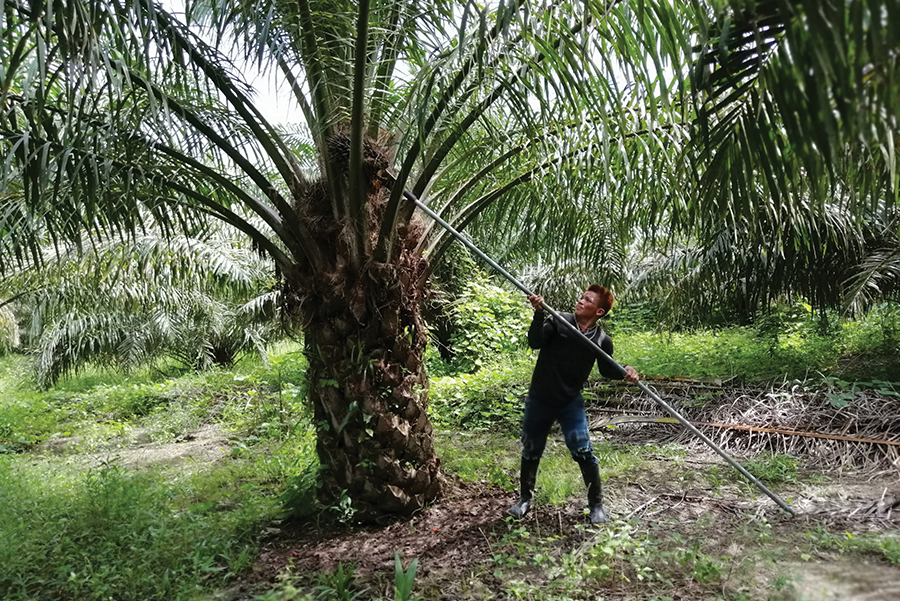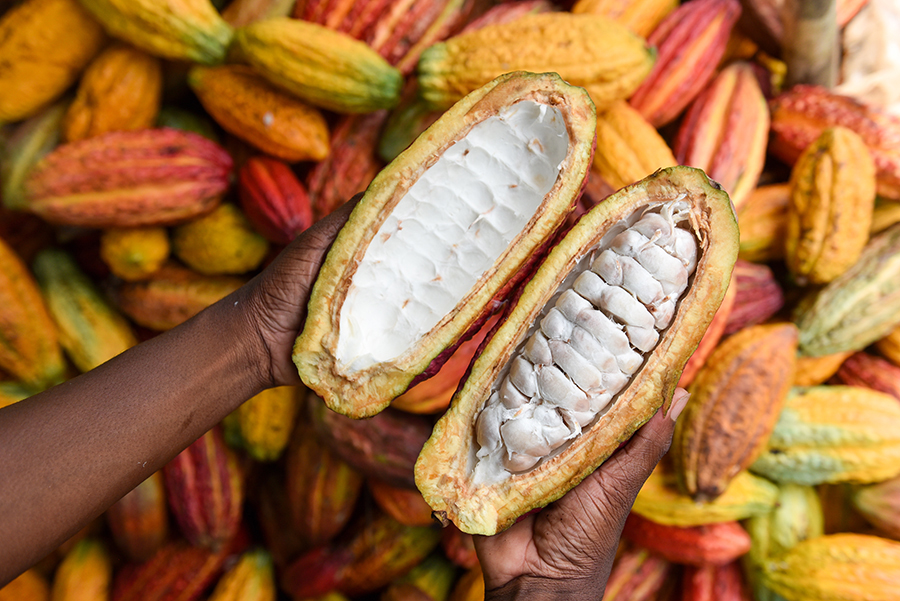CIAT leads project to reduce deforestation in the Peruvian Amazon
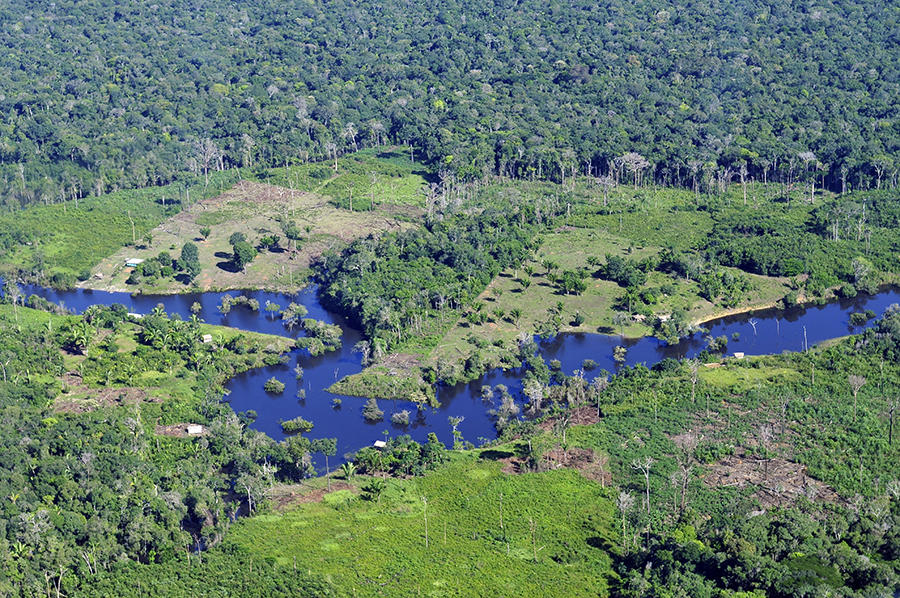
The initiative, jointly coordinated with the Peruvian Ministry of Environment (MINAM) and Ministry of Agriculture and Irrigation (MINAGRI), the subnational government of Ucayali, and in partnership with international consultants Climate Focus (CF), aims to facilitate adoption of sustainable production practices for oil palm and cacao, and deliver on commitments to zero deforestation.
The Peruvian government is committed to reducing greenhouse gas (GHG) emissions from deforestation and agriculture and promoting low-emissions development in the agricultural sector. In order to do this, it is necessary to tackle challenges related to the implementation of agricultural management practices that improve productivity while also contributing to GHG emissions reduction.
Within the framework of the Joint Declaration of Intent (JDI) for delivering on the goals of the Nationally Determined Contributions (NDCs) related to reducing GHG emissions from deforestation, the Peruvian government seeks to establish public-private partnerships that facilitate the adoption of sustainable practices in prioritized production systems in deforested lands and reduce pressure of agriculture on forests.
With this in mind, the “Business models to address drivers of deforestation in Peru” project (shortened to Sustainable Amazonian Businesses-SAB) develops deforestation-free business models for the oil palm and cacao sectors in Ucayali. The project is part of the International Climate Initiative (IKI), supported by the German Federal Ministry for the Environment, Nature Conservation and Nuclear Safety (BMU). It will be implemented until 2021 and it is aligned with the environmental and low-emissions development goals of the national government of Peru.
The proposed project activities include the following:
- Analysis of the context specific to deforestation drivers
- Assessment of GHG emissions in prioritized value chains
- Design of zero-deforestation business models
- Evaluation of business models in regards to their potential for economic, environmental (GHG emissions reduction), and social benefits
- Development of plans for implementing zero-deforestation business models
- Development of strategies to scale out and finance zero-deforestation business models
According to Marcela Quintero, Agroecosystems and Sustainable Landscapes (ASL) Research Area Director at CIAT and project leader, “the project goals include two participatory strategies for value chains, comprising a shared vision agreed by the chain actors and aimed at delivering on commitments to zero deforestation and verifiable emissions reduction. Also, it involves transitioning from strategy to execution, thus the project is committed to implementing at least two deforestation-free business models for oil palm and cacao in the Amazon region, proving that these commercial commitments are possible for reducing deforestation.”
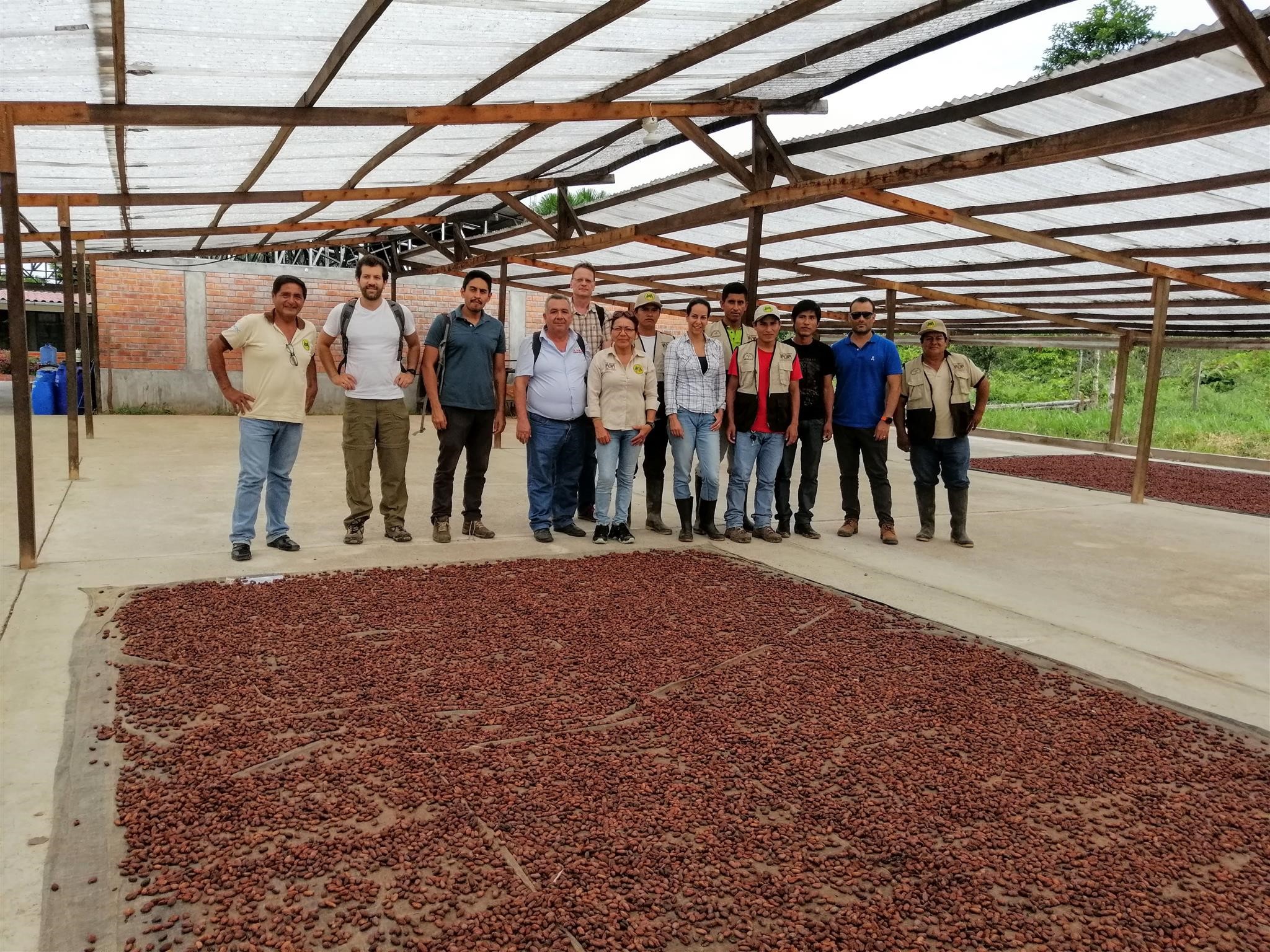
Workshop on participatory models with medium- and small-scale farmers from the Ucayali-Huánuco region in the Amazon, who were organized through business partners.
As part of the project activities, a workshop was held recently with officers and specialists from the subnational government of Ucayali about inclusive business models and value chain methodologies. Likewise, other workshops were carried out with oil palm and cacao farmers with the aim of collecting information for estimating production costs and emissions of oil palm and cacao production systems in the city of Pucallpa (Ucayali region). For this, an exploratory visit was necessary in March, which brought together the CIAT team with government officers, representatives from cooperatives and companies from the prioritized chains.
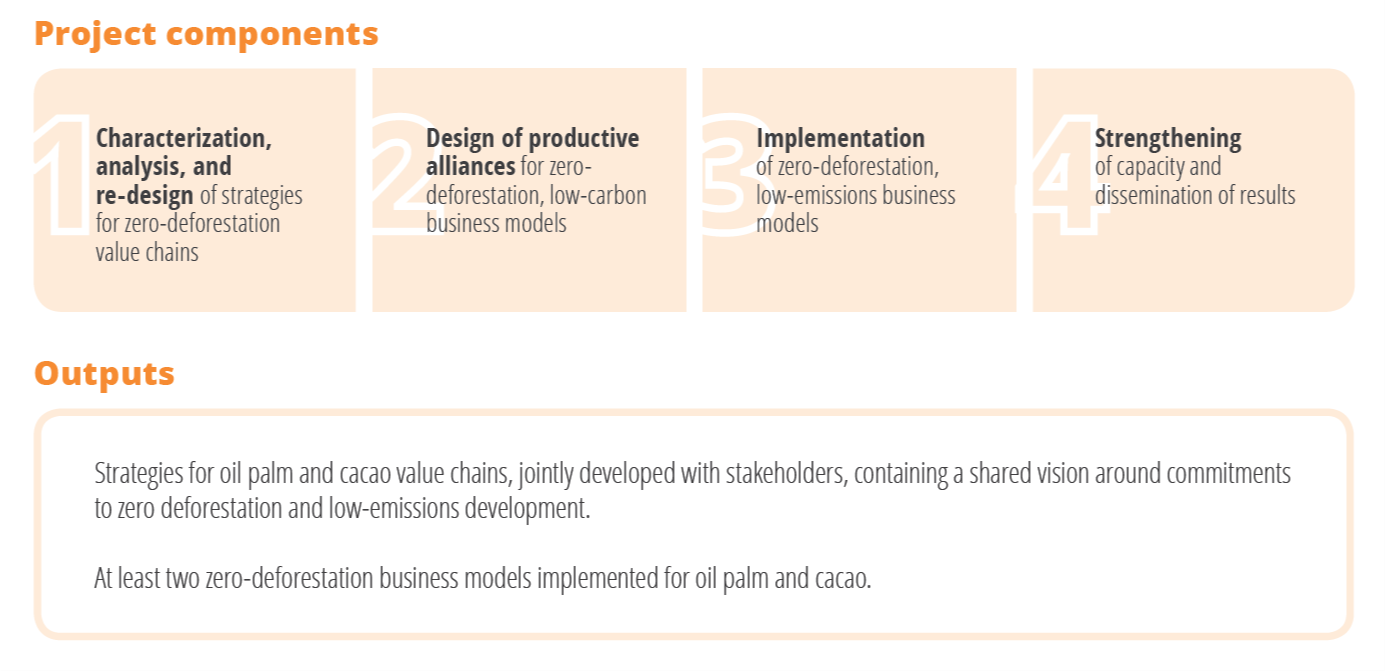
This project is part of the International Climate Initiative (IKI). The German Federal Ministry for the Environment, Nature Conservation and Nuclear Safety (BMU) supports this initiative based on a decision made by the German Bundestag. It will bring together the expertise and capacity of two CIAT research areas: Agroecosystems and Sustainable Landscapes (ASL) and Decision and Policy Analysis (DAPA), within the framework of the CGIAR Research Program on Water, Land and Ecosystems (WLE).
Contacts:
Marcela Quintero
Project Leader
Agroecosystems and Sustainable Landscapes (ASL) Research Area Director, CIAT
[email protected]
Yovita Ivanova
Project Coordinator
Agroecosystems and Sustainable Landscapes (ASL) Research Area, CIAT
[email protected]


